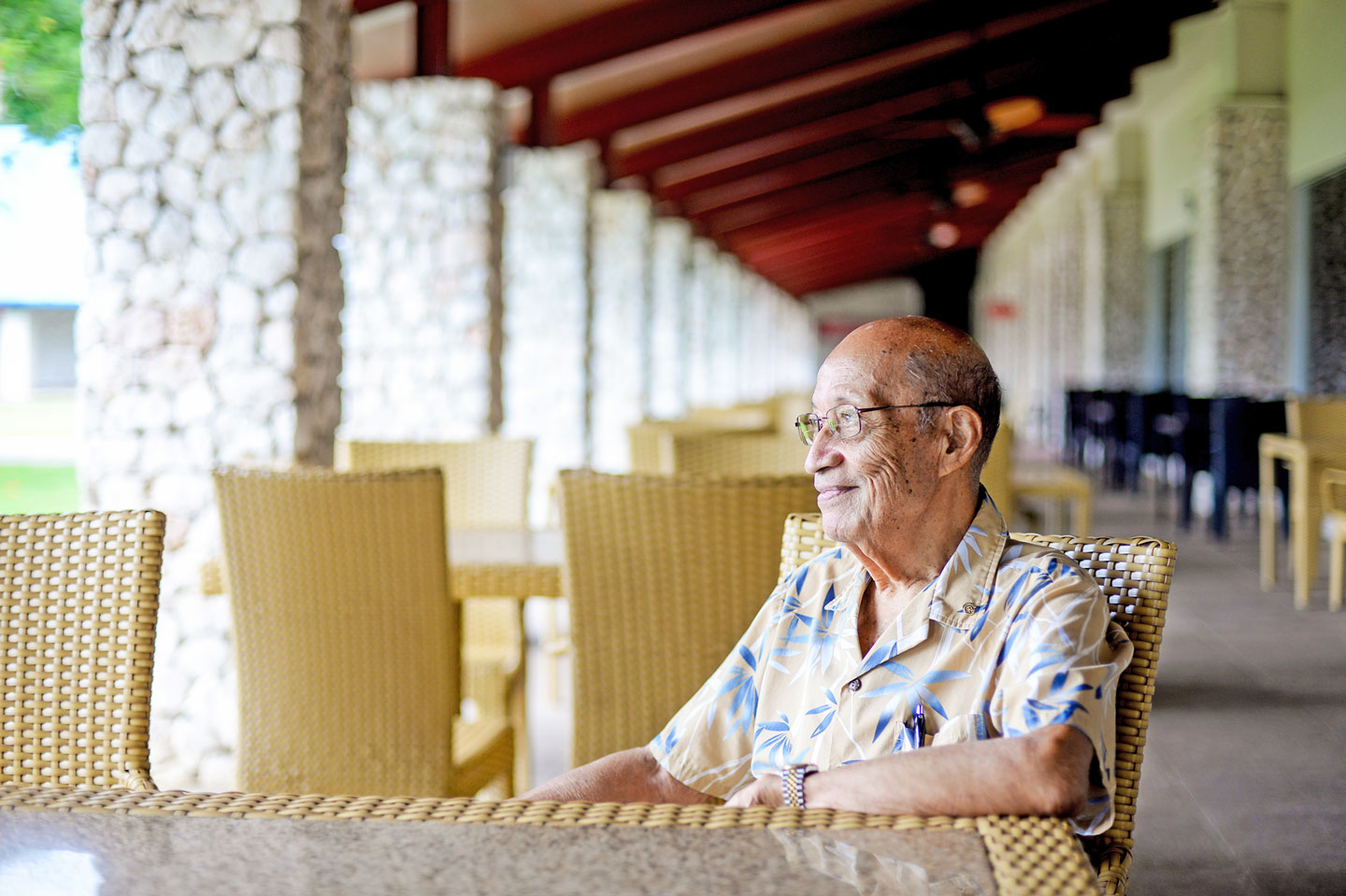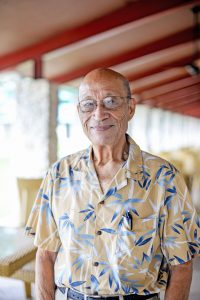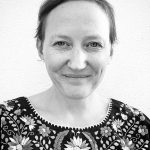Uncle Dave: You cannot go forward without looking back

The Yeh-Yeh series shares rich stories and oral traditions of Saipan. The name is inspired by Refaluwasch elder Lino Olapai’s childhood memory of being told to say “yehyeh” as the elders told stories. Once it was quiet, the elders knew the children were asleep.
Look to the soil.
So says distinguished Saipan businessman David Sablan Sr. as he brainstorms ideas on how to rescue Saipan’s economy during these troubled times.
Sitting at a table at the Terrace Cafe of the Fiesta Resort and Spa Saipan, Sablan wears a tan Hawaiian shirt, a gold Rotary Club pin shining on his lapel. At age 88, he is as sharp as the ballpoint pen clipped to his front pocket.
“We should go back to the soil and let the government help those who would like to go back to agriculture,” says Sablan, who has fond memories of his own family farm that held acres of átes, sweet sop, that filled his belly on long weekends.
Uncle Dave, as he’s warmly known, frequently pauses mid-story to address anyone who walks past. He knows everyone. This was, after all, his hotel.
“Hey there, sir!” He calls and waves to a chef who walks past. Uncle Dave’s smile is magnanimous across his face.
“I’ve always been outwardly,” he says, before hopping back into the re-hashing of his storied life—a remarkable chronicle of business and development accolades across Micronesia.
Sablan can easily be credited for a huge swath of Saipan’s economic development, which includes 28 years as the head of the island’s Atkins Kroll branch, his work as the chairman of the Marianas Tourist Authority, his founding of Tasi Tours and his business acumen that helped usher in this exact hotel where he now sits as part of the route war between Continental and Pan-Am Airlines.

Sablan can name every person who helped him along the way, starting with his father, Elias P. Sablan, the first elected mayor of Saipan, and continuing down a long list of people who gave him room and board, provided a chance to learn something new, or ushered him along to the next opportunity.
“I knew nothing about nothing,” Sablan says, laughing as he remembers leaving Saipan for the first time for Guam at age 15—when his father “kicked him off the island” to get an education.
“I slept on a piece of plywood on a kitchen floor,” he said of his first years in Guam.
At another homestay, while he attended high school, he had to wake up at 4am to collect coconuts and feed the pigs. “When the others awoke, it was my job to go to all the rooms and empty the bedpans. I was able to subsist this way.”
He went from one opportunity to the next, learning what he could, doing what he could.
Sablan graduated from George Washington High School, got married, and entered the world of Atkins Kroll in Guam, the oldest American company on island that had sold Micronesian copra to the world market since before the war.
Every opportunity was another chance for this part-Carolinian, part-Chamorro boy who once slept on a kitchen floor to transform the islands into an economic center that could sustain itself, provide for its people and share its resources with the world.
And now, retired but very much in tune to the island’s economy, Sablan brainstorms around the idea for the government to provide farmers with funds to once again cultivate the land.
He remembers when this exact thing happened in the 1950s, when the Navy cleared the tangan-tangan trees for any farmer who wanted to cultivate their land, and the food production was sold to commissaries in Guam. He had helped his father with the original agricultural program.
“You cannot keep going forward without looking back,” Sablan says.
“My advice would be to go back and look at what it was before and what you, as a new generation, can duplicate or make changes to, so the economic situation will change,” Sablan said. “We must cooperate with each other as much as possible, utilize the knowledge that we have so we can move forward economically, educationally, so we can live happily together.”

Yeh-Yeh
Lindsay Nash (Special to the Saipan Tribune)
Lindsay Nash is a writer and photographer who lives on Saipan. She is a member of the Marianas Writers’ Movement and is currently writing a novel about 20th century Saipan. Email her at lindsayinsaipan@gmail.com.






